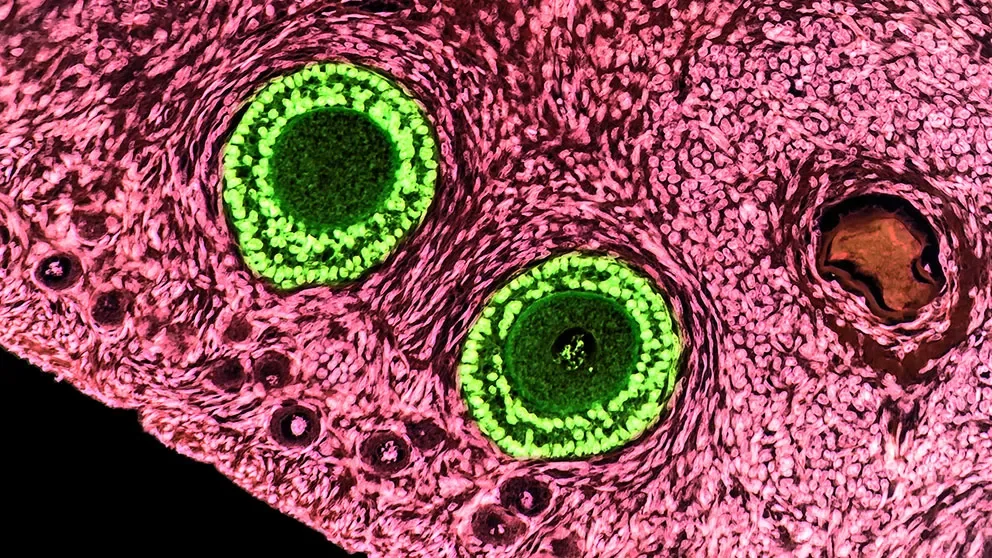Preventing infertility in cancer treatment
Research Highlight | June 8, 2017
Upon receiving a cancer diagnosis, it seems impossible to think about anything else. Yet women diagnosed with cancer must consider not only their treatment but also the impact it may have on their fertility. Immature oocytes – precursors to egg cells – are hypersensitive to DNA damage that can be caused by certain cancer treatments, often leading to early loss of fertility and ovarian hormonal function. Currently, women who wish to preserve their fertility usually resort to cryogenic oocyte preservation, but the collection and storage of the oocytes generates additional costs and delays necessary cancer treatments.
Scientists are still trying to find alternatives to these invasive procedures.In a paper published in Genetics, a team led by John C. Schimenti, Ph.D., of Cornell University, and including JAX Assistant Professor Ewelina Bolcun-Filas, Ph.D., developed a pharmacological approach to preserving ovarian function in mouse models.
The team found that pharmacological inhibitors of the enzyme checkpoint kinase 2 (CHK2), which is involved in oocytes’ cellular response to DNA damage, prevented loss of immature egg reserves in ovaries exposed to sterilizing doses of radiation. The team was even able to transfer the irradiated ovaries into sterilized female mice, which then went on to produce healthy offspring. They designed this novel strategy based on theirprevious finding that genetic inactivation of the CHK2 gene preserved fertility in female mice treated with radiation.
The results presented in this paper provide promising experimental evidence for therapeutic strategies targeting the CHK2 pathway in order to prevent premature menopause and fertility loss in girls and women undergoing radiation treatment. Next steps include assessing potential genetic risks, evaluating if this egg-saving treatment is also effective against ovarian toxicity of chemotherapies, and determining whether the inhibitors are equally effective before and after puberty.
Rinaldi et al.: Pharmacological Inhibition of the DNA Damage Checkpoint Prevents Radiation-Induced Oocyte Death. Genetics, Early online June 3, 2017; https://doi.org/10.1534/genetics.117.203455
Bolcun-Filas, E., et al.: Reversal of female infertility by Chk2 ablation reveals the oocyte DNA damage checkpoint pathway. Science, 2014. 343(6170): p. 533-6.

